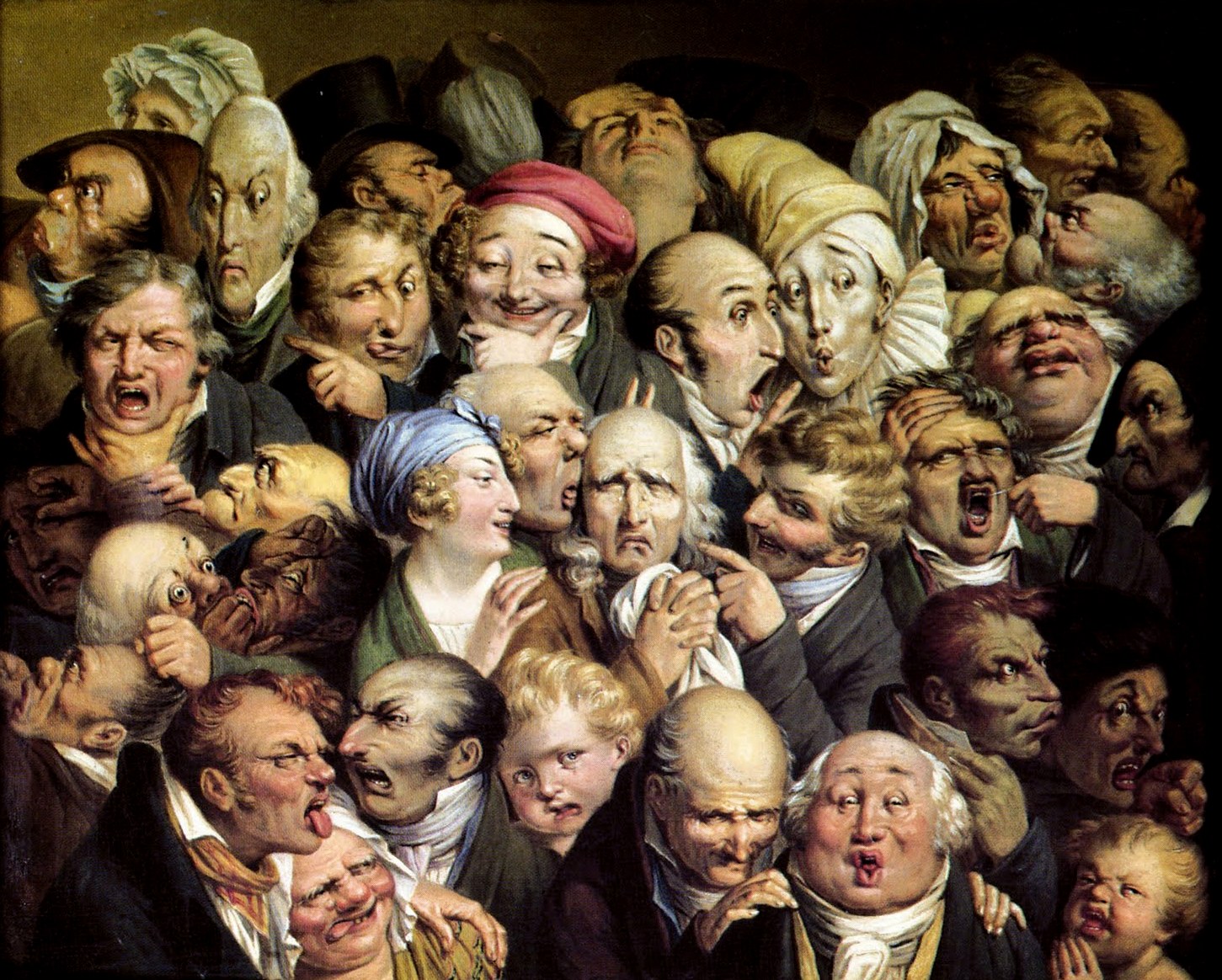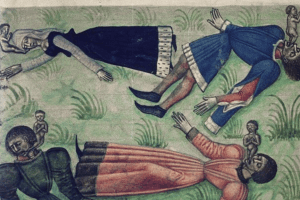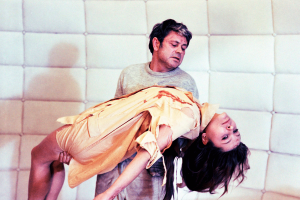
It is possible some of you might recall the Seinfeld episode in which a rabbi neighbor of Elaine spreads around a secret she has confided him. She was jealous that her loser friend George was engaged and was getting married before her, who couldn’t even keep up with steady dating. The rabbi, of course, tells Jerry the juicy confidence. When Elaine shows up furious at Jerry’s apartment, complaining about the rabbi spreading her secret, he tells her: Elaine, if I could say a word here about the Jewish people…That man in no way represents our ability to take in a nice piece of juicy gossip and keep it to ourselves! Do not hesitate, dear reader, if the reference is unknown to you. If you never saw Seinfeld, it is nothing YouTube or a torrent cannot fix.[1] What is relevant here is the text in Jerry Seinfeld’s comment, who, together with the show’s co-creator Larry David, is a member of the American Jewish community. Set in context, there is undoubtedly more to the joke than it lets on.
It was Sigmund Freud who, in 1905, published a lengthy essay entitled Jokes and Their Relation to the Unconscious. In it, with the scientific meticulosity that led him to place himself on the fringe of science, he highlighted the possible displacements, devices, and workings, both characteristic and particular, to the formulation of jokes—the Witz, as he originally called it in German—within the psychic apparatus. Let us remember that, together with slips, dreams, and forgettings, jokes are considered one of the key manifestations of the unconscious. Incidentally, there is a formulation in the text that makes me think of Jerry Seinfeld’s comment. Says Freud—in regard to Jews who make heavy jokes about Jews—that they themselves seem to be wrapped in the condition of the joke and its significance is that the person concerned finds direct criticism or aggressiveness possible only along these circuitous paths.[2] From this, we can derive that, just as it happens to a subject, there is something that reveals itself to a people as the horrendous within them, and which is impossible to deal with in any other symbolic form than as jokes.
Jokes harbor some kind of jouissance. In their condensation of language, Freud tells us, occurs a saving of psychic expenditure—let us understand psychic expenditure as a working of thought or as a mere elaboration of speech around a problematic knot (what happens in an analysis). That is, there is no narrative elaboration but a condensation in the formulation of a joke, which makes it function as an effect-causing device. What produces the effect remains implicit, unverbalized. The saved expenditure, which produces only a fleeting jouissance (laughter), will always seek to find discharge elsewhere.
Returning to Freud’s comment, that deep condensation of jouissance harbored by jokes—a jouissance that produces as much satisfaction as discomfort, since it falls both within the order of language and of lack—seems to oppose elaboration of thought or speech. To point out an example, this is why Freud opposes jokes to riddles: the latter, unlike the former, requires a psychic expenditure: you need to think in order to solve a riddle.
Fear not, dear reader, this will be the only theoretical density to be deployed in this text. Onwards!
What is a political joke? A joke about Jews is a political joke, as is any other involving the imaginary condition—there is a problematic nucleus within all imaginary—of a nation or a people. In Venezuela, we have made generous use of political jokes. It is true that we have a close relationship with political jokes in our tradition, which has enabled—a word to the wise—political humor. Let us remember, for instance, El Morrocoy Azul (1941) magazine, founded by Miguel Otero Silva, which featured writings from figures such as Andrés Eloy Blanco and the brothers Aquiles and Aníbal Nazoa; El Sádico Ilustrado (1978) magazine, directed by Pedro León Zapata, featured collaborations from a very long list of Venezuelan writers and intellectuals of the time; the El Camaleón weekly supplement, founded by «Graterolacho,» which was part of the Venezuelan cultural life of the eighties and nineties; and on the small screen format, and for over 40 years, the Radio Rochela.
But what is the place of political jokes in the crisis that surrounds us? Let us begin by stating that within a polarized context there is no discourse capable of dealing with any possible tolerance of the crisis (its difficulties and horrors), because neither requires elaboration; on the contrary, the polarized discourse is that of certainties, of repetition, of mere speculation without questioning. In every polarized discourse lies a project of erasing difference. The political impasse—which is nothing more than a complication of the everyday impasse with the other—is not resolved by means of thought and words in polarization, but by disregarding or exterminating difference. Now, within a polarized society, traversed—we must say it—by a devastating symbolic crisis (i.e., little or nothing holds in the use of the words harbored by social bonds), jokes emerge as the sole resource to address the real—horrific—that is fairly well condensed in the frequently heard and uttered questions: What happened to us? What is happening to us?
Nowadays, I believe it is fair to assert that El Chigüire Bipolar, as well as certain homemade productions, are the prime spaces where jokes summarize what we don’t want to know about. Contained anger, disheartenment, uncertainty, fear, disillusion, find an outlet for the horror of the real that approaches in the effect of the Witz. Let us take just one topic of this horror as an example: the lynchings. On April 5th of the current year, El Chigüire Bipolar titles the following under the ‘Nation’ category: «INAMEH pide que dejen de quemar malandros porque aumenta la calima» [INAMEH—the national meteorological agency—Asks to Stop the Burning of Crooks to Prevent the Rise of Smog]. You probably just let out a pleasing gesture, a smirk—but of course, the effect it produces is great. Around that time, I remember the news about a lynching committed by the community of Los Ruices: they had burned alive an innocent young man—a chef—because they had mistaken him for a crook. «Mistaken» is a euphemism. How can a raging mob tell one thing from another? Those facts fall under the order of the real and of that we do not speak.
It is known that, given the inefficiency of law enforcement, many people have been at least questioned (when not downright driven like those neighbors from Los Ruices) by the image of righteous revenge. The horror! Never! a few will say; What else is left? will say some others. But the pure imaginary keeps imposing over the symbolic, an imaginary full of real—«the real is without law,» said Lacan. At this point, we must clarify that criticism is not aimed at condemning political jokes, quite the opposite: May all use of language, all wit prevail in the political life of society! We do, however, mean to point out that, on the one hand, is the political joke as the only thing being traded, and on the other, is the imaginary overflowing into its most brutal ways—I want this and I take it!—without mediation through any norm. Meanwhile, the public discussion, the one involving all of us, that of the political use of language, is missing. In the meantime, we remain eager for the remains that gush out of polarization.
The psychic expenditure that a scenario as complex as that of Venezuela’s demands of each of us and which finds a saving in political jokes, is displaced in the body toward other areas, it is relocated, effecting uneasiness. In some cases (in the best of cases) this energy is turned into creative or sportive outlets; on others, into the bloodiest violence. In Venezuela, fascism seems to occupy the opposite pole to political jokes: it allows for playing out this imagery of extermination of the difference that cannot find in the center, in the heart of society, a way to deal with the crisis through words.
Notes
[1] It is the second episode of the seventh season, entitled «The postponement.»
[2] In the English edition used for this translation, the fragment reads: «What determines their participating in the jokes themselves seems to be the same as in the case of Heines famillionairely joke; and its significance seems to lie in the fact that the person concerned finds criticism or aggressiveness difficult so long as they are direct, and possible only along circuitous paths.» Freud, Sigmund. Jokes and Their Relation to the Unconscious. Open source file retrieved from: http://www.sigmundfreud.net/jokes-and-their-relation-to-the-unconscious.pdf (p103).
About the author:
Jordi Santiago Flores (Caracas, 1984) is a researcher at the Center for Critical and Sociocultural Research of the Universidad Simón Bolívar (CICSC-USB). He is a professor at the School of Arts of the Universidad Central de Venezuela (UCV). He is currently writing his doctoral thesis in the line of Psychoanalysis and Social Sciences of the UCV’s Social Sciences Ph.D. program. His fields of interest orbit psychoanalysis, art, and politics. He is an Associate of the New Lacanian School at Caracas.
















